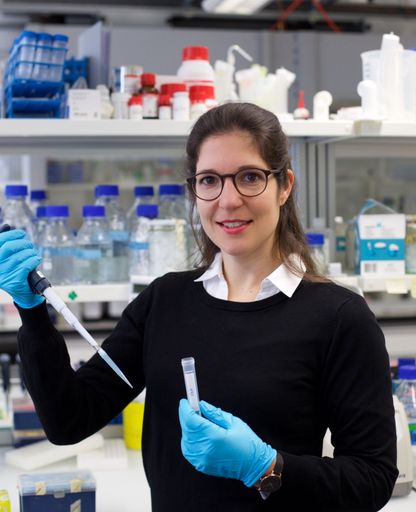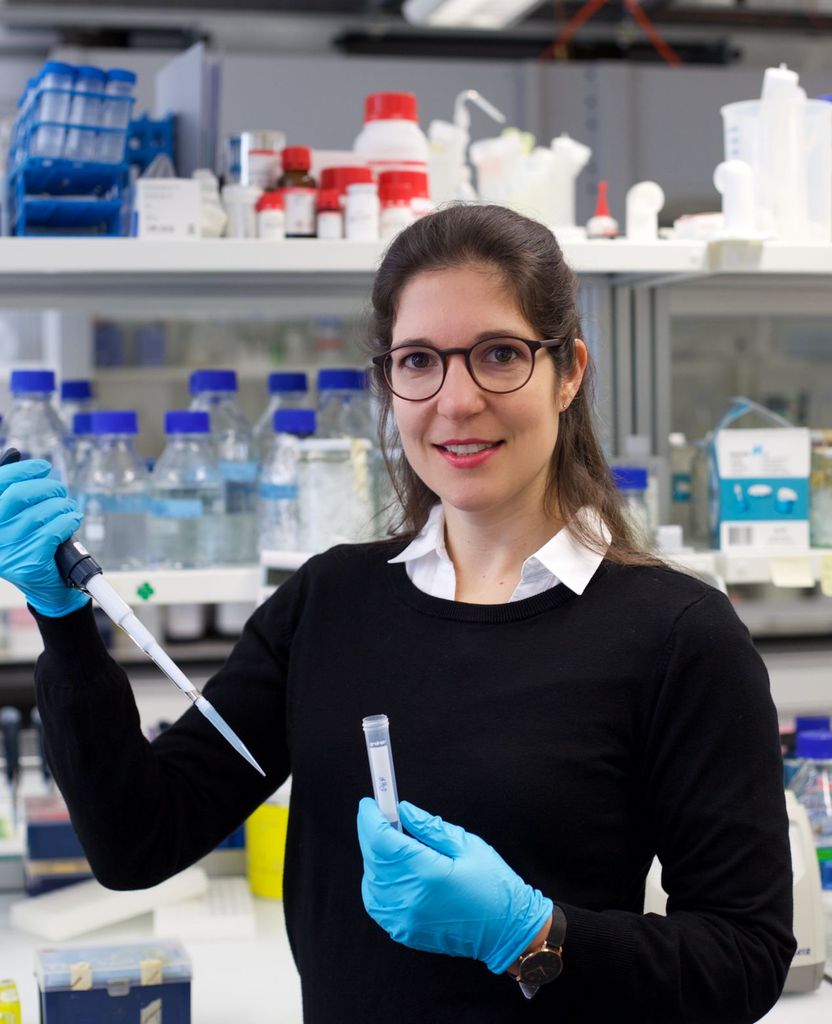Sujets correspondants

Award ceremony for the Prix Schläfli Chemistry 2019
The Swiss Academy of Sciences (SCNAT) has awarded the Prix Schläfli 2019 to the four most important insights gained by young researchers at Swiss universities. Murielle Delley has been awarded by the Prix Schläfli Chemistry 2019 for her findings, that deepened the understanding of how certain catalysts, such as those used in polyethylene production, work.
Image : Bernard Delley
Award ceremony for the Prix Schläfli Biology 2019
The Swiss Academy of Sciences (SCNAT) has awarded the Prix Schläfli 2019 to the four most important insights gained by young researchers at Swiss universities. Rebekka Wild has been awarded by the Prix Schläfli "Biology" 2019 for her findings on the structure and function of a unit in biological cells that contributes to regulating phosphate concentration.
Image : Rossitza IrobalievaAward ceremony for the Prix Schläfli Geosciences 2019
The Swiss Academy of Sciences (SCNAT) has awarded the Prix Schläfli 2019 to the four most important insights gained by young researchers at Swiss universities. Julie Zähringer has been awarded by the Prix Schläfli Geosciences 2019 for her findings in sustainability science in Madagascar.
Image : Julie ZähringerAward ceremony for the Prix Schläfli Physics 2019
The Swiss Academy of Sciences (SCNAT) has awarded the Prix Schläfli 2019 to the four most important insights gained by young researchers at Swiss universities. Matteo Fadel has been awarded by the Prix Schläfli Physics for his findings in quantum mechanics.
Image : Universität Basel
Rebekka Wild – Protéines et autres structures
Prix Schläfli 2019: C’est une belle journée de printemps à l’EPF Hönggerberg. L’on s’assoit à la terrasse du café pour discuter. Rebekka Wild semble très détendue, comme si elle n’avait rien de plus important à faire que de profiter du soleil. Pourtant, elle travaille plutôt à 150%, lit même la littérature scientifique le soir et, de temps à autre, également un livre.
Image : Rossitza IrobalievaJulie Zähringer – Rapprocher les extrêmes
Un petit moment d’irritation se fait sentir dans la conversation avec Julie Zähringer, qui en dit long sur ses recherches et les défis particuliers qui en découlent. Cette dernière a fait de la recherche «dans un domaine» dans lequel il n’y avait guère de connaissances préalables. Il ne s’agit pas d’un domaine de réflexion, mais d’un domaine très concret: Julie Zähringer a travaillé en marge de diverses réserves naturelles à Madagascar où la population locale est souvent prise en étau entre différents intérêts nationaux et internationaux. Il est donc question de régions géographiques mais aussi de personnes qui y vivent. Il est ici question de politique, d’économie et de situations chargées d’histoire.
Image : Julie Zähringer

